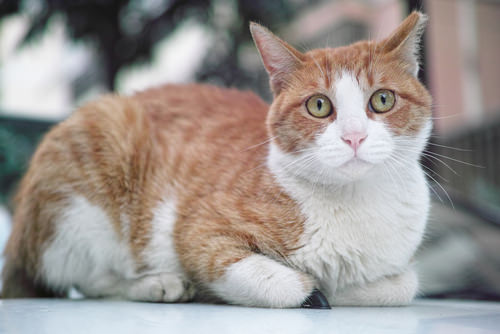
Most cat lovers know that Tylenol and aspirin are toxic to cats. These are phenols and domestic cat show a remarkable sensitivity to adverse effects of this type of compound. But did you know that there are other things that are believed to be safe and natural that can actually kill your cat for the same reason?
Scientists believe that because phenolic compounds originated in plants, cats (as carnivores) lack a metabolic pathway to detoxify phenols and eliminate them from the body. Not only are Tylenol and aspirin toxicities important to cat lovers, but also many disinfectants and parasite treatments, especially those derived from plants can cause toxic effects in cats. Plants and essential oils seem so much healthier than chemicals made in a laboratory, but not for cats.¹
Disinfectants that contain pine oil, like Pine-sol can be very harmful to cats. Essential oils found in natural flea treatments, like peppermint oil, cinnamon oil, lemongrass oil, clove oil, and thyme oil have all been documented to cause toxic effects for cats. Signs of toxicity usually occur within 24 hours of exposure. These signs can include: agitation, anorexia, muscle tremors, salivation, vomiting, and weakness. Tea tree oil is known to cause a similar problem because of the same pathway deficiency.
We want to do right by our cats and “natural” substances seem to be better, but care should be exercised when using these specific compounds around cats. Remember, just because it is natural does NOT mean it is safe, especially not for cats. If a product comes from a plant, it might be better to keep it completely away from your cat, just to be safe!
Like to learn about cats? Follow me on Facebook for stories, trivia and photos. Click here.
- Evolution of a major drug metabolizing enzyme defect in the domestic cat and other felidae: phylogenetic timing and the role of hypercarnivory. PLoS One. 2011 Mar 28;6(3):e18046. doi: 10.1371/journal.pone.0018046.Shrestha B, Reed JM, Starks PT, Kaufman GE, Goldstone JV, Roelke ME, O’Brien SJ, Koepfli KP, Frank LG, Court MH.

